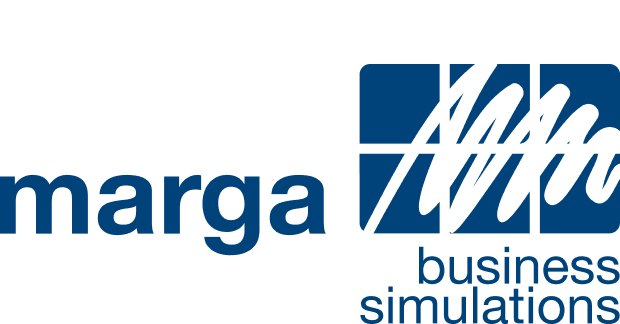Online, in-class, blended learning
What are the advantages of the different learning formats and what is the most suitable option for me?

Online, face-to-face or blended learning: what is the right training format for me?
The continuing education market has been undergoing a major transformation since the start of the coronavirus pandemic. Before the pandemic, the majority of training courses were still held as face-to-face events, but since then e-learning has experienced an immense upswing. There is now a huge range of different learning formats on offer.
Around two thirds of companies have had to restrict their training measures in the wake of the coronavirus pandemic.* However, once the pandemic is over, many companies are planning to expand both the range of in-company training courses on offer and their investment in them again.
For many, the question now is which training format is the right choice. Should we return to predominantly face-to-face training, continue with online formats or offer training in a mix of both forms?
It is difficult to find a universal answer to this question today. After all, all formats have their advantages, but also weaknesses that need to be taken into account, and are suitable for different requirements.

Online-format: High flexibility and independence of location
Digital training is in vogue – and has played a central role at MARGA not only since the start of the coronavirus pandemic. This is because e-learning has clear advantages over traditional face-to-face training:
- Location-independent: participation is possible from anywhere, regardless of country
- Time independence: flexibility through asynchronous learning
- On-the-job training: hardly any downtime at the workplace
- Cost savings: No travel costs
- Self-directed learning
- Multilingualism
However, e-learning also has its weaknesses: A high level of self-organization and initiative is required; learning success can suffer from a lack of interaction and exchange with the trainers.
We are aware of these challenges and consciously counteract them in our online programs, because:
Personal support for participants is our strength: in addition to self-directed learning, participants also receive individual and comprehensive online support from experienced and competent trainers. This includes live webinars and unlimited personal tutoring.
In the business game, participants experience game-based learning in a team: in virtual teamwork, participants manage their virtual company and compete with other teams. This ensures interactive and motivated learning.

In-class-format: High level of interaction and direct exchange
Despite the trend towards digital training, many companies are still sticking to face-to-face events. This is because advantages such as the opportunity for direct exchange and a high level of interaction are important success factors in the learning process.
Face-to-face seminars have important advantages. For example, there is a much more intensive exchange with the trainers, who provide direct feedback and can answer interim questions immediately and spontaneously.
There is also a much stronger team and group dynamic when the work is done together on site. The direct interaction in the group has a motivating effect. Team building among colleagues is encouraged and networking between participants is also facilitated.
In contrast to online training, face-to-face events take place on external premises or at least outside the participants’ own workplace. Disruptive factors and distractions are avoided, which ensures a greater focus. This is because training does not just take place in between. It is often good for participants to simply get away from their daily work routine during the seminar.
Even though the majority of our programs now take place online, it is therefore important to us to continue to offer our customers the option of face-to-face events, which are still often and gladly used.

Blended learning-format: The optimal mix of both worlds
According to a study by PwC, more than three quarters of companies do not want to do without digital training or face-to-face events in the future and are therefore planning a mix of both forms.* It can therefore be assumed that blended learning will play an important role in the future. This is because it allows the advantages of face-to-face seminars to be combined with the strengths of online training.
Blended learning also plays an important role at MARGA. This is because, in our opinion, the decisive advantages lie in the combination of different formats and media. In our face-to-face modules, current management knowledge can be developed and communicated in a personal dialog. In the exciting online business game competition, participants deepen their knowledge and apply it to specific business decision-making situations.

The different learning formats at MARGA:
There is no one perfect learning format for everyone. In the end, the choice should always depend on the organizational circumstances: is the focus on direct interaction and team building, should learning be as flexible as possible, do the participants take part across locations or even across borders?
In order to optimally meet the needs of our customers, we offer our programs as face-to-face, blended learning and online solutions – either individually tailored to you or in the form of our open management training, which we offer in all three formats.
Are you interested in our business game?
Book a free consultation appointment now. We are always there for you personally and will be happy to advise you.


*PWC Studie „Trends in der betrieblichen Weiterbildung 2021“ in Cooperation with Berlin Digital Business University of Applied Sciences (DBU)



